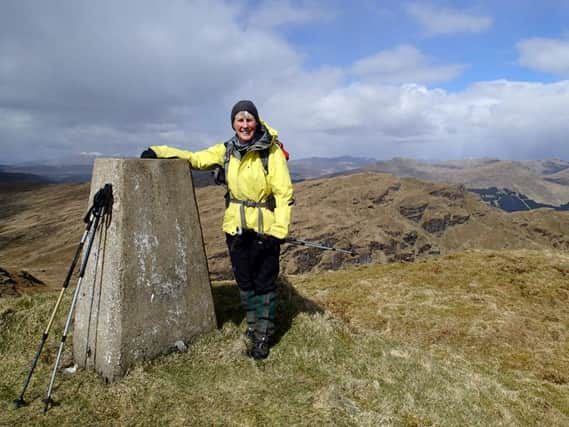Working to help youngsters challenge themselves


The centre in Milngavie’s Community Education Centre has been running the expedition part of the DofE Scheme for more than 25 years putting thousands of youngsters between the ages of 14 to 25 through their paces preparing them for the challenges of the great outdoors.
Alison Higham from Milngavie, who was one of the group that received a long service certificate at Holyrood for more than 20 years of services to the scheme said: “This is a real honour to receive this. I have decided to retire from the Duke of Edinburgh this year as I will be 70 and it is time to make way for younger people to carry the award forward.”
Advertisement
Hide AdAdvertisement
Hide AdAlison has worked with fellow instructors Charles Smith from Helensburgh, Shona Panton from Bearsden, and Dennis Lappin, who will be carrying on their role at the centre.
Alison said: “There is no doubt all of us have seen some big changes in the way The Duke of Edinburgh Scheme has been delivered over the last couple of decades, but the core values remain the same.”
Among these Alison says there is an emphasis on making young people self reliant, but also for them to recognise the value of taking an active part in the community.
She explained: “The scheme stretches young people in all sorts of way both physical and mental. Part of my job volunteering at Allander centre was to prepare the youngsters for the expedition they will be taking part in for their award.
Advertisement
Hide AdAdvertisement
Hide Ad“One of the main things about the DofE award is that it helps build team building skills especially in the expedition section as the group need to work as a team to complete their expedition and these are such useful skills for the future.”
One area that has changed beyond a great deal is the amount of paperwork involved in organising these trips.
Alison admitted this was something that was now necessary because of the health and safety concerns and she joked: “We have never lost any of our youngsters yet. We have mislaid them, but we found them again.”
The community element is a big part of the bronze, silver and gold Duke of Edinburgh award scheme.
Advertisement
Hide AdAdvertisement
Hide Ad“We are really indebted to The Oxfam shop in Bearsden. Part of the criteria for award to volunteer in the community and they have been great. For the bronze award a participant has to volunteer for one hour a week for three months, for silver it is one hour a week over six months and for the gold it is the same, but for a minimum of a year. We find many of the young people who take part in scheme take longer to complete the scheme, because they have other commitments such as school work and exams.”
Fellow instructor Charles Smith, agreed that much has changed since he started volunteering for the scheme back in the late 1970s.
The 75-year-old retired bank manager said: “I’ve been doing this for so long it is hard to remember when I actually started. I believe it’s been 35 years. I was involved with Glenmore Lodge in my 20s in the 1950s and 60s and have always had an interest in the outdoors.
“There is such a sense of achievement seeing these young people developing their skills in such a constructive way.
Advertisement
Hide AdAdvertisement
Hide Ad“I don’t do so many expeditions nowadays. Most of what I teach is class based, but I still get a great deal out of sharing the skills I’ve learnt over the years.”
The Duke of Edinburgh has expanded over the years and there is now a Kirkintilloch Open Award Centre centre with school across the authority taking part, including Bearsden Academy and Kirkintilloch High School.
Charles added that they were always looking for more volunteers to come forward and help out. If you feel you can help you can contact Craig Walker: [email protected] 07894 400559 at the re-started centre, or Lynn Smith: [email protected]
The Duke of Edinburgh’s Award programme was founded in 1956 by Prince Philip, Duke of Edinburgh and has since expanded to 144 nations. The awards recognise adolescents and young adults for completing a series of self-improvement exercises
Advertisement
Hide AdAdvertisement
Hide AdIn Britain the programme is run by The Duke of Edinburgh’s Award, a royal charter corporation. A separate entity, The Duke of Edinburgh’s International Award Foundation, promotes the award abroad and acts as a coordinating body for award sponsors in other nations, which are organised into 62 National Award Authorities and a number of Independent Operators.
It was first administered, and largely designed, by John Hunt, who had led the first successful climb of Everest in 1953, and had retired from the army to run scheme.